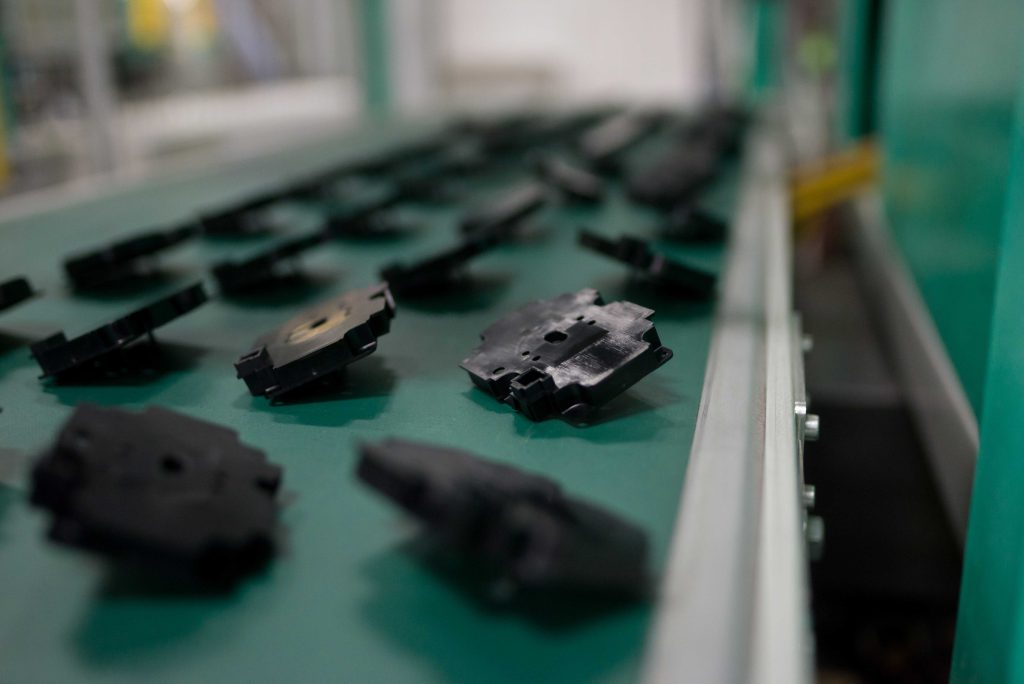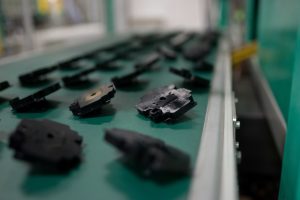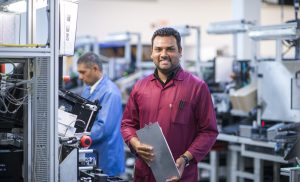Injection Molding for Manufacturers
Marquardt Partners provides injection molding services for manufacturers in industries that include automotive, medical, aerospace, automotive, and defense. We produce 80% of the plastic parts that we use at our Cazenovia, New York (USA) manufacturing facility and achieve the highest quality by using modern injection molding equipment and robust process controls.
From our injection molding machines to our injection molding materials, Marquardt Partners combines state-of-the-art technology with proven performance. As a provider of end-to-end manufacturing services, we use injection molds that are made from quality steel for tight tolerances and fine finishes. For each tool, we develop a robust process that’s based on decoupled molding for optimized parameters.
Injection Molding Machines
Marquardt Partners has 18 injection molding machines made by ARBURG, a 100-year-old German company that develops and produces its equipment in compliance with the highest environmental and energy standards. The tie bar spacing for our equipment ranges from 270 to 570 mm. Along with maximum platen spacing, tie bar spacing determines the largest size molds that can used with a machine.
The injection molding equipment at our Made in USA manufacturing facility has a shot size that ranges in capacity from .1 oz. to 15 oz. Shot capacity is important because it determines the maximum weight of the material that can be delivered to an injection mold by one stroke of the ram. The ram is a screw-type plunger that forces molten plastic into the mold’s cavity.
In addition, our ARBURG injection molding machines have a clamping force ranging from 28 to 244 tons. Clamping force is vital to the success of your injection molding project because it holds the mold closed as plastic pressure is developed inside mold cavities. Clamp tonnage also affects part dimensions, some of which are critical for part quality, and literally holds the injection molding process together.
All of Marquardt Partners’ injection molding equipment is state-of-the-art, including our two-component machine that’s capable of injecting two different plastics into a custom two-shot mold. Two-shot is a plastic molding process that molds two different plastic resins together in a single machine cycle. It’s also known as “overmolding.” You can find examples of this technique inside most modern cars. If a switch or knob features a soft rubber material on the outside, it’s likely a 2-shot component. This process enhances efficiency by molding two plastic components with a single tool.
Injection Molding Materials
Marquardt Partners can mold a wide range of thermoplastic engineering materials. These plastics have a melt range between 350°F and 600°F and become solid after cooling. Because of our extensive experience with the automotive industry, we have a large catalog of resins and can recommend the best choice for your project based on temperature sensitivity, number of cycles, and your application requirements.
The thermoplastic materials that we most commonly injection mold include:
- Polyamide (PA), known as nylon, combines toughness with high heat resistance and high abrasion resistance.
- Polyoxymethylene (POM) has excellent tensile and flexural strength and maintains its dimensional stability. POM comes in various grades, but Delrin® is a common trade name.
- Polybutylene Terephthalate (PBT) is resistant to creep, the tendency of a material to deform permanently under constant stress. PBT is a type of polyester.
- Polycarbonate (PC) is strong, lightweight, and naturally transparent. Lexan® is a common trade name.
- Polycarbonate/Acrylonitrile butadiene styrene (PC/ABS) is a thermoplastic alloy that’s flame-retardant and has properties that include impact resistance.
Injection Molds (Tools)
The injection mold, or tool, that’s used with plastic injection molding is a significant financial investment. Marquardt Partners works with quality mold makers domestically and globally providing us access to our injection molding facilities in Mexico and Romania if you need them. The tools that we use are built for a million cycles or more. This requires high-quality tool steel, but there are other considerations as well.
The core and cavity inserts in our injection molds are made of hardened steel alloys like H13 and S7. A type of tool steel, H13 readily withstands rapid heating and cooling. S7 has good resistance to softening at moderately high temperatures and offers very high impact toughness. In some cases, we use stainless steel or copper alloys because of their chemical resistance or heat transfer properties.
Marquardt Partners conducts all necessary preventative maintenance and mold repairs in-house. Utilizing tools engineered for millions of cycles, it remains crucial to uphold their maintenance and undertake repairs to minimize flash—unwanted plastic that forms on part surfaces. Typically, flashing escapes along the parting line that separates the mold core from the mold cavity.
Injection Molding Process Control
When you work with Marquardt Partners, you can be sure that our injection molding process control is quality-driven. This approach ensures that we monitor the results of key process parameters such as injection pressure, melt temperature, and mold temperature. Plus, for each tool that we provide, Marquardt Partners develops a robust process based on decoupled molding.
Producing high-quality plastic parts consists of filling mold cavities at high speeds and pressures that typically range from 8000 to 30,000 pounds per square inch (PSI) of plastic pressure. Depending on the part size and the tool design, the filling time can range from .2 to 2 seconds. In turn, this supports cycle times ranging from 10 to 70 seconds. As with the fill time, the cycle time varies by part size and tool design.
Marquardt Partners prioritizes quality! Every injection-molded plastic part is manufactured according to a documented set of process parameters, meticulously stored in our document control database. Moreover, it’s important to highlight that Marquardt Partners has three key certifications: ISO 9001:2015 for all industries, ISO 13485 for medical injection molding, and AS9100D for aerospace injection molding.
Ask Marquardt for Injection Molding
Marquardt Partners has the technical expertise, capabilities, and commitment to quality that is essential for high-quality injection molding. From our injection molding machinery to our materials, we’re ready to meet your business and technical requirements. Plus, working with us lets you harness the purchasing power of a global organization.
From product development to lifecycle management and everything in between, Marquardt Partners is the full-service injection molder that you need.



